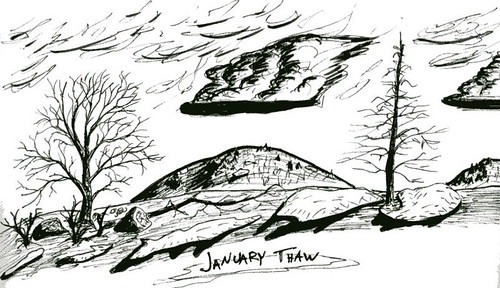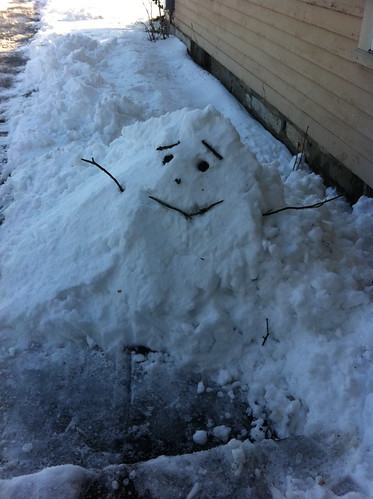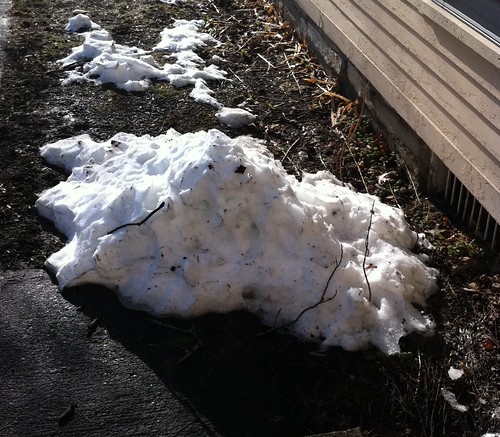Most years, however, the long periods of cold are broken by at least one (sometimes several) short periods of significant warming. Some love these short periods because they offer a break from the cold. Others grumble angrily because they tend to remove all of the snow (and are ruinous for skiing). Like it or not, it's a near certainty most years in Vermont. It even has a name: the January Thaw.

This year, the (first?) January Thaw arrived a bit early (according to this website, January Thaw usually occurs late in January - though we may get a thaw at that time as well). Temperatures rose above freezing on New Years Eve. We rang in the new year to temperatures around 40, and on New Years Day, temperatures in Burlington neared 50 with a few scattered rain showers.
Snow monsters are perhaps the biggest detractors of the January Thaw.

The thaw was hard on this little guy living outside my friend's house. After two days, there wasn't much left of him.

This photo was taken after the thaw ended. You can see that he survived, but with significant limb loss.
Although January Thaw isn't my favorite seasonal weather event, it can be very interesting in its own right. The creeks start flowing and break free from the ice. Often ice jams form in the larger rivers. January Thaw can also be a very challenging time to retain urban runoff. Rain barrels aren't usable because they would be ruined when the temperature dropped back below freezing. Sometimes the ground is frozen under the snow, and there is no way for rain gardens or other pervious surfaces to absorb water. This year, though, significant snow fell right as the temperatures dropped below freezing. Snow is actually a great insulator, and despite the cold of December, the ground wasn't frozen to any significant depth. Still, all of the plants are dormant, and aren't using water, so t here was quite a bit of runoff.
After the thaw, the snow did not return right away, so the ground DID freeze a bit.

Ice formed on the Winooski River when it was filled with snowmelt, and then the water level dropped, creating these neat ice formations.

The thaw had ended on Sunday night and the snow finally arrived this afternoon at around 1 PM.

The snow is light but is accumulating. I think we have around an inch, and may get another inch out of this small storm. Light snow is in the forecast on and off until Sunday so we will probably end up with a few inches of snow by then. I am going to take advantage of the break on Sunday to drive to Pittsburgh for my winter visit. Both Vermont and Pittsburgh (as well as much of the rest of the Northeast) may experience a more significant snowstorm in about a week. After that, if the long range forecasts are correct, we're in for an arctic blast over most of the US.
Basically, it is unlikely the temperatures will raise above freezing (MAYBE near freezing) in the next two weeks, if at all in January. Hopefully you all enjoyed the thaw, because like so many seasonal Vermont phenomena, it ended remarkably fast.

No comments:
Post a Comment